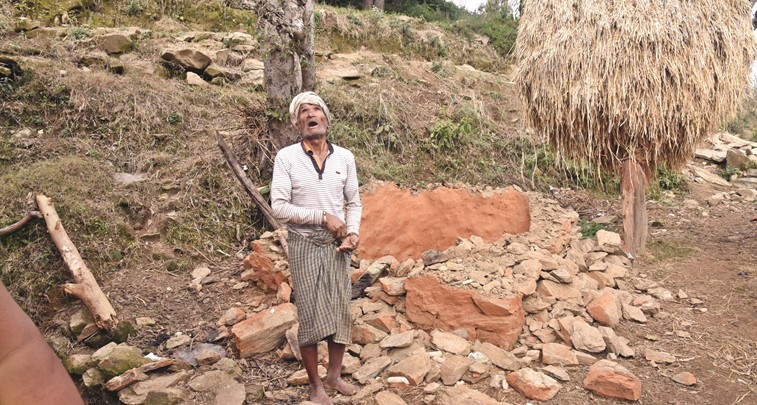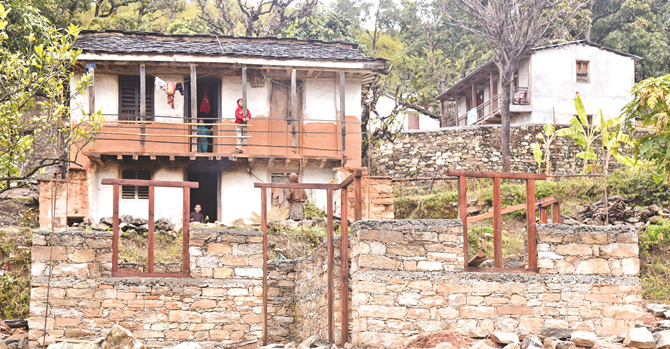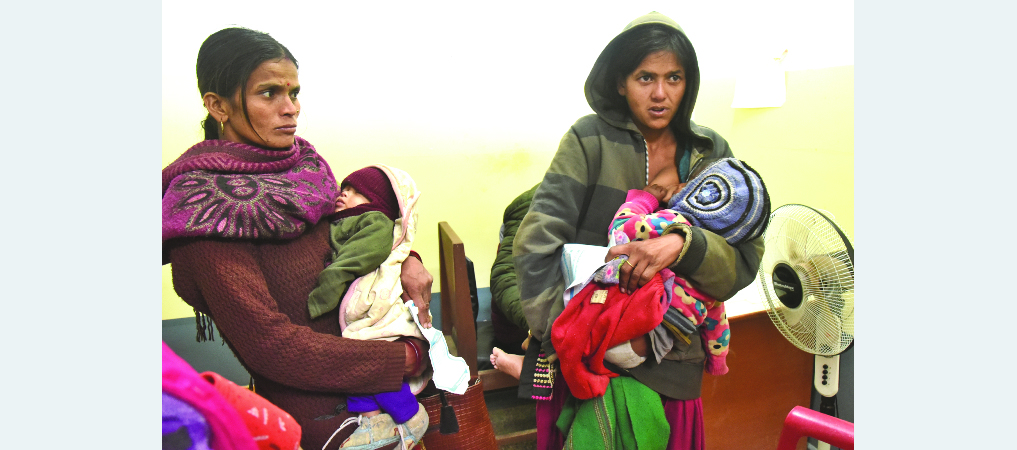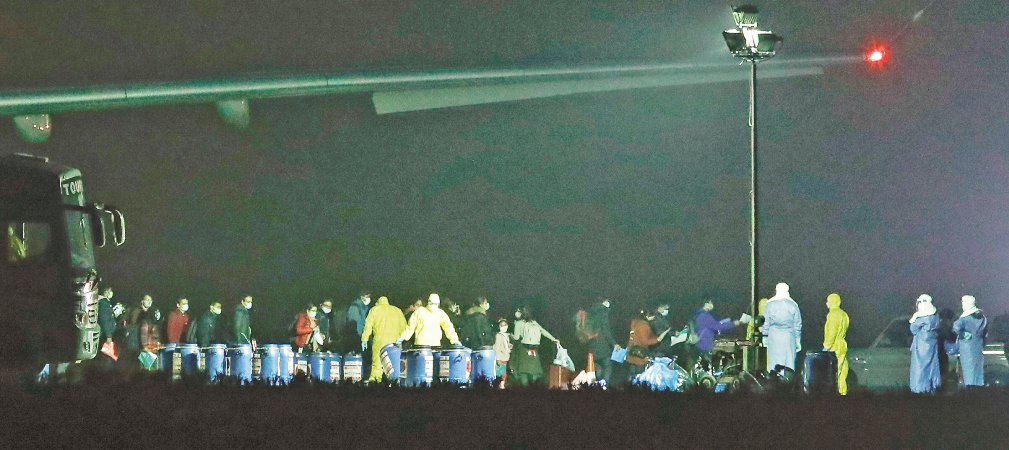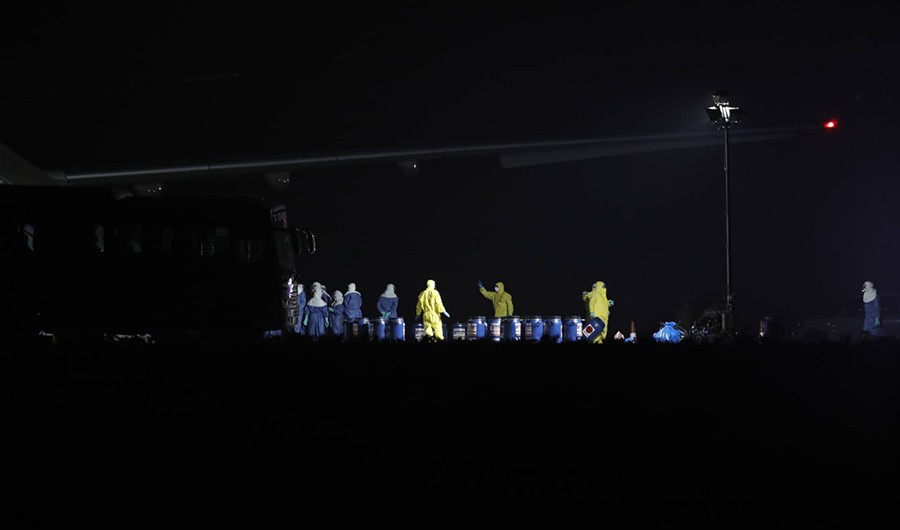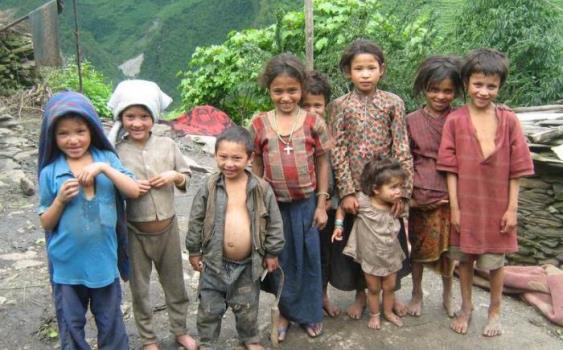Kathmandu Valley at early stage of community transmission

By Ajita Rijal
Kathmandu, Sept. 13: The COVID-19 cases in Nepal have become Kathmandu Valley-centric for the past few days and week. The Valley is witnessing 400 to 600 cases per day, which is more than 47% of the total number of cases across the nation.
According to the Ministry of Health and Population (MoHP), Kathmandu Valley has reported 11,139 cases of COVID-19 of which 9,103 are from Kathmandu, 907 are from Bhaktapur and 1,129 from Lalipur districts as of today.
“Now, in the Kathmandu Valley, COVID-19 positive cases are being detected among people who have never visited virus-hit areas or come in close contact with infected people,'' said Dr. Basudev Pandey, Director of Epidemiology and Disease Control Division (EDCD).
“In this condition, we can say that Kathmandu Valley is at early stage of community transmission,” said Dr. Pandey. “Moreover, the Valley is witnessing higher number of cases as the PCR test rate is also wide in comparison to other districts,” he added.
Most of the cases are seen among the people working on frontline, cautioned Dr. Pandey and added that it seems to be their negligence. “Now that there is no shortage of the personal protective gears, frontline workers must be habituated to use protective gears and keep themselves safe,” added Dr. Pandey.
The security personnel, health workers working in COVID and non-COVID hospitals and their family members are also found to be infected lately.
Among the infected people of the valley, 25 per cent have symptoms while 75 per cent are asymptomatic, he added.
The infected people having symptoms as well as asymptomatic but who fall under vulnerable group such as with diabetes, hypertension, heart, kidney problems, among others, are referred to COVID dedicated hospitals, said Dr. Pandey.
According to health experts, the coronavirus develops its chain. Therefore, test among people who come in close contact with the infected people, isolating positive cases and identifying their contact is very essential. Experts also suggest conducting serology tests, to find whether the virus is spreading in the community.
The MoHP has noted that despite a rise in the number of COVID-19 cases in the Kathmandu Valley and across the nation, the government is equipped and fully prepared to deal with the COVID-19 surge.
“We are prepared to handle around 40,000 live active cases,” said Dr. Jageshwor Gautam, MoHP Spokesperson.
The main aim of the lockdown imposed earlier and the ongoing partial prohibitory orders in districts is to contain the transmission of the virus and lessen the number of hospital admission cases. It also helped to raise awareness amongst the public about preventive measures, said Mahendra Prasad Shrestha, Chief Consultant and COVID focal person at MoHP. “The Ministry is planning for micromanagement of the cases, we are identifying the vulnerable areas and will act accordingly to prevent wider community transmission,” added Shrestha.
“The Ministry has developed the system and has made all preparations for case investigation, contact tracing and establishment of isolation facilities and hospitals. But at the same time, the public also need to be more alert, aware and take all safety precautions and behave responsibly,” said Shrestha.
Behaviour change is important to contain virus
Health experts have suggested that people should learn to live with the virus by changing their behaviour and should continue to wear masks, keep physical distance, wash hands frequently and avoid indoor gatherings.
Dr. Anup Bastola, Spokesperson of Sukraraj Tropical and Infectious Disease Hospital (STIDH), said that though behaviour change of people is very challenging, it is imperative to contain the spread of the virus.
“Massive awareness campaign is most essential to change the behaviour of people,” said Dr. Bastola, adding that public must be mindful that the best option to keep oneself safe from getting infected with the virus is strictly abiding by all the public health safety precautions.
A door-to-door campaign on awareness raising on how social collaboration, discipline and awareness can fight ignorance and COVID-19 would be the best option to fight the pandemic, said Dr. Bastola.
Though everybody is well aware of the safety protocols, even many educated people are found to be negligent and careless in public places. Every citizen is obliged to follow appropriate behaviour to stay uninfected in order to minimize the burden in hospitals and treatment centres. COVID-19 cases are increasing among the people working on the frontline, said Dr. Bastola, adding that every health institution should have a team to remind and motivate health workers and patients to follow all safety precautions.
Dr. Rabindra Pandey, a public health expert, suggests the public to learn to live with the COVID-19 phenomenon, considering it as the new normal. “If we change our behaviour and adopt precautionary measures in each step of our daily lives, we can easily fight this pandemic,” said Dr. Pandey.
“Implementation of public health safety protocols, controlling movement at the border entry points as well as minimising citizen’s movement inside the country is very essential at the moment to stop further spread of the virus,” added Dr. Pandey.
Recent News

Do not make expressions casting dout on election: EC
14 Apr, 2022
CM Bhatta says may New Year 2079 BS inspire positive thinking
14 Apr, 2022
Three new cases, 44 recoveries in 24 hours
14 Apr, 2022
689 climbers of 84 teams so far acquire permits for climbing various peaks this spring season
14 Apr, 2022
How the rising cost of living crisis is impacting Nepal
14 Apr, 2022
US military confirms an interstellar meteor collided with Earth
14 Apr, 2022
Valneva Covid vaccine approved for use in UK
14 Apr, 2022
Chair Prachanda highlights need of unity among Maoist, Communist forces
14 Apr, 2022
Ranbir Kapoor and Alia Bhatt: Bollywood toasts star couple on wedding
14 Apr, 2022
President Bhandari confers decorations (Photo Feature)
14 Apr, 2022



